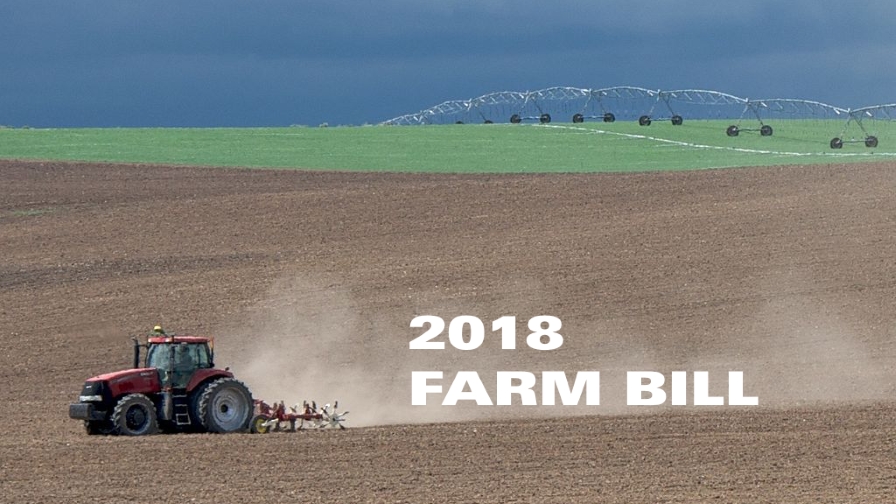
Photo courtesy of Wikimedia.
While there has been a lot of political news this week, none of it revolves around the 2018 Farm Bill. That’s surprising, since the existing Farm Bill expires this Sunday, Sep. 30.
During the United Fresh Washington Conference, various speakers all agreed that the chance we’ll have a 2018 Farm Bill by Sunday was highly unlikely.
What’s the Hold Up?
First, some quick background. Both the House and the Senate passed a version of the 2018 Farm Bill. It is now in the Conference Committee to resolve the differences between the two bills. Only after that process happens will the bill be passed and become law.
There are two main reasons (and possibly a third) the Committee hasn’t been able to resolve those differences yet, Robert L. Guenther, United Fresh’s Senior Vice President, Public Policy, said during the Washington Conference. They are:
- Significant policy differences between the House and Senate versions. These include nutrition and conservation issue, like Supplemental Nutrition Assistance Program (better known as SNAP).
- Different funding priorities. Again, nutrition is an issue, but so is research, conservation, and animal vaccine bank.
The possible third reason? Politics. Mid-term elections are a mere month away, after all.
What Happens October 1?
The most likely scenario is that Congress will vote for an extension, Guenther says. That is what happened in 2012, as well as many other years. Buying time to continue negotiations is apparently pretty common.
If there isn’t an extension, we’ll revert to the last permanent Farm Bill, which dates from the first half of the 1900s and its budgets. Some programs need an annual vote to remain funded, and those would lose their budgets all together. Congress is unlikely to let that happen.
Since negotiations are breaking down in part because of SNAP, you’d think some wouldn’t mind letting the bill expire in order to gain leverage in the SNAP funding debate.
But its one of two major programs with permanent funding (crop insurance is the other one). That means that SNAP would continue even if the bill expires.
December Is the Next Big Milestone
Guenther says the date everyone should watch for is December. That’s when extensions need to be put in place if the Conference Committee doesn’t agree to a final version of the bill.
That’s something one of the main four negotiators agrees with.
“It’s in December when in fact you have to move,” Senate Ag Chairman Pat Roberts (R-KS) told Politico. “At that time then you’d have to get an extension. Farmers, ranchers, growers, they don’t want that. They’d like some certainty and predictability.”
Roberts is part of “The Big Four,” a self-given name of the key negiotiators. It’s made up of Roberts and Debbie Stabenow (D-MI) on the Senate side, and House Ag Chairman Mike Conaway (R-TX) and Collin Peterson (D-MN) on the House side.
Multiple reports say that Conaway is bucking the other three over how certain programs should be funded. That includes some programs that would affect specialty crops directly, Guenther says. Most of the committee agrees on the funding of programs like Specialty Crop Research Initiative (SCRI) and a fund that could be applied to unexpected issues that need research dollars above the SCRI, such as finding a way to combat the virus huanglongbing (HLB) that causes citrus greening.




